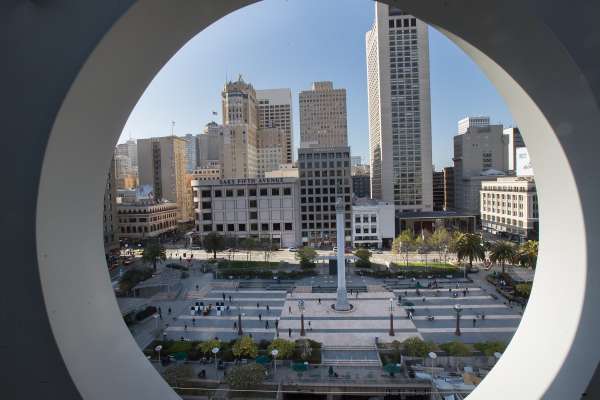On Monday June 7, the board of the Community Benefits District in San Francisco’s Castro neighborhood became the first SF CBD to reject a networked camera system being gifted to the city’s business districts by Ripple CEO Chris Larsen. Larsen’s camera systems which are assembled and installed by a vendor called AVS, have been promoted by the cop nonprofit SF SAFE as a quasi private/public solution for property and nuisance crimes including auto theft, shoplifiting and graffitti.

AVS camera systems have already been installed in the city’s Downtown, Tenderloin and Japantown districts. The Downtown camera system was accessed for real time monitoring of the June 2020 Black Lives Matter protests, which is currently being litigated in the state courts.
Castro community groups including both LGBTQ democratic clubs, the Harvey Milk Club and the Alice B. Toklas Club, the Castro LGBTQ Cultural District, and the neighboring United to Save The Mission came out strongly against the proposal, as did the Castro Merchants Association.
Concerns included Larsen’s financial stake in the camera vendor AVS, the national security customer base for AVS which included the NSA and the CIA, the lack of efficacy of cameras in preventing property and quality of life crimes, access and retention of the camera footage, the history of the Castro as a neighborhood of refuge, and the financial stress on struggling local merchants to pick up the camera maintenance costs after the Larsen grant ran out.
The cryptocurrency entrepeneur and the vendor have been shopping their business district networked camera systems, both in San Francisco, where they have been installed in Downtown, the Tenderloin and the Japantown neighborhoods and across the Western states. Chris Bushick, a privacy activist with PDX Privacy, tuned into to testify about the spread of the program to Portland, OR.
The Monday meeting focused largely on a survey the business dostrict undertook with a consultant who had previously been a Cisco Systems executive. The survey which replaced the term “security camera” with the term “safety cameras” was widely panned by the community groups in attendance as being filled with leading questions, disposing of a large number of raw surveys for unclear reasons, and still presenting less than a plurality of neighborhood support.
Before voting unanimously to abandon the program, members of the CBD board noted that they would have expected community support in the range of 70-80%, not the 54% the survey revealed and that the ongoing financial burden the system would place on neighborhood businesses would be problematic.
Quasi public/private camera networks can blanket a region in surveillance cameras with little accountability or citizen control. The Castro CBD vote is the first known rejection of a subsidized private camera network from Larsen’s program.
Press:
Hoodline: Castro CBD Votes to End Private Security Camera Proposal
Bay Area Reporter: Castro CBD Board Rejects Camera Proposal
